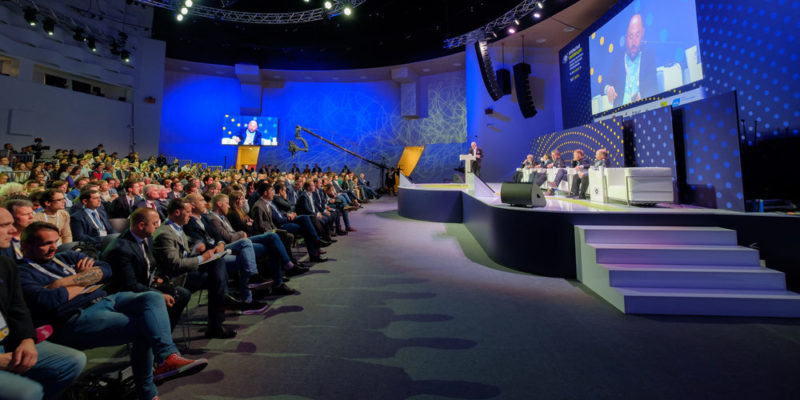We explain what the debate is and what its main characteristics are. Also, the items you own and your rules of conduct.
What is the debate?
Debate is a way of communicating that consists of the confrontation of different points of view regarding the same topic . The meeting is held between two or more parties (two people or groups) in which a specific issue is addressed from different conceptions.
It is understandable that people have different opinions and reactions on the same topic, especially if it is related to politics or ethics . Through a debate, it is likely that the parties will not change their minds , but they will be able to better understand those who think differently.
Characteristics of the Debate

A debate is characterized by being a safe meeting moment for the confrontation of ideas , through respect and without violence (otherwise, it would be a confrontation). There are two general types of debate, depending on the environment in which they take place:
- Formal discussions. Those that usually have a structure that establishes the moments for the speaker and the moments for the audience to ask their questions and give their opinion. They may even have someone in charge of moderating the meeting (responsible for maintaining order between the parties). For example, an informative debate offered by an authority to a specialized or press audience.
- Informal discussions. Those that arise spontaneously, without prior agreement or structure, and that allow opposing points to be exchanged harmoniously. They are usually very interesting and genuine because the thoughts and emotions of each participant emerge, without premeditating them. For example, discussions that originate during a family dinner or during a class at school .
- An informative tone. The information to be discussed is presented in a complete manner, based on facts and evidence. A speaker can be the one who presents that data and the audience can be the one who asks questions to clear doubts.
- An argumentative tone. The data that tries to give reasons for a point of view must have a reliable support that guarantees it so that the debate does not result in a meaningless discussion between opposing positions.
- A persuasive tone. A speaker (or group they represent) may have the intention of convincing an audience. For that, he will use convincing techniques from logic, emotion or sympathy.
Elements of a formal debate
A formal debate has the following elements or steps to follow in order to carry it out:
- Planning of the topic or hypothesis to be debated, clearly and in accordance with the target audience.
- Organization of the teams (from the speaker or representative of the group, audience, moderator, among others).
- Determination of the structures or moments so that each party has the floor. For example, a speaker can answer questions from the audience only after finishing his speech .
- Initiation of the debate itself, which may or may not be in charge of the mediator or moderator.
- Execution of the debate, with the respective moments for each party to speak.
- Conclusion of the debate, which may consist of a few words from the moderator, to bring the meeting to a close.
Rules of conduct
 For a debate to develop properly and in harmony, it is necessary for each party to respect certain general rules of conduct:
For a debate to develop properly and in harmony, it is necessary for each party to respect certain general rules of conduct:
- Be tolerant of the differences of others.
- Listen without interrupting.
- Do not underestimate or make fun of those who think differently.
- Avoid raising your voice to interrupt the speaker.
- Avoid dispersing or talking about topics unrelated to the debate.
- Criticize with grounds or with better proposals than those criticized.
The above content published at Collaborative Research Group is for informational and educational purposes only and has been developed by referring to reliable sources and recommendations from experts. We do not have any contact with official entities nor do we intend to replace the information that they emit.
MA student of the TransAtlantic Masters program at UNC-Chapel Hill. Political Science with a focus on European Studies. Expressed ideas are open to revision. He not only covers Technical articles but also has skills in the fields of SEO, graphics, web development and coding. .
Leave a reply
Your email address will not be published. Required fields are marked *Recent post

Sport: What Is It, Types, Risks, Features, Characteristics and Examples

Dogs: Emergence, Features, Characteristics, Feeding and Breeds

Story: Definition, Elements, Structure, Features and Characteristics

